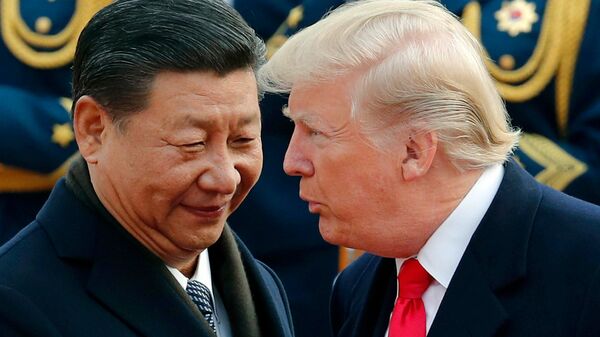China's state council published a white paper on its ongoing bilateral trade disputes with the United States at 1 p.m. local time (05:00 GMT), Xinhua News Agency reported.
"The US shamelessly began to preach unilateralism, protectionism and economic hegemony, and also began to make false accusations against many countries and regions, in particular, China, intimidating other states through economic measures such as the imposition of duties and undertaking attempts to impose its own interests on Beijing by exerting extremely strong pressure," the document said.
Washington has imposed tariffs on $200 billion worth of Chinese goods and Beijing has responded with retaliatory tariffs on $60 billion in US imports.
"As a result, trade and economic tensions between the two sides have escalated in a short period of time, which has seriously damaged the trade and economic relations which were developed over the years through the joint work of the governments and peoples of the two countries. This has created a serious threat to the multilateral trading system and the principles of free trade," Beijing's white paper said.
On Saturday, Beijing decided to withdraw from trade talks with Washington, following recent sanctions that the United States imposed against the Chinese Defense Ministry and the Russian state arms exporter Rosoboronexport in connection to deals for the purchase of Russian aircraft and S-400 missile systems.
READ MORE: China Summons US Ambassador Over Sanctions for Cooperation With Russia — Reports
The US imposed a 25% duty on the import of 818 items from China, which account for $34 billion a year in exports to the US.
As a countermeasure, China imposed a 25% duty on an equal volume of American imports on the same day.
In August, the US imposed a 25% duty on $16 billion worth of Chinese goods. Immediately afterwards, Beijing introduced similar measures.
The discontent of the United States is caused by the trade imbalance between the two countries; according to Washington, the US imported $500 bln in Chinese goods last year, versus $130 bln in exports to the country.



